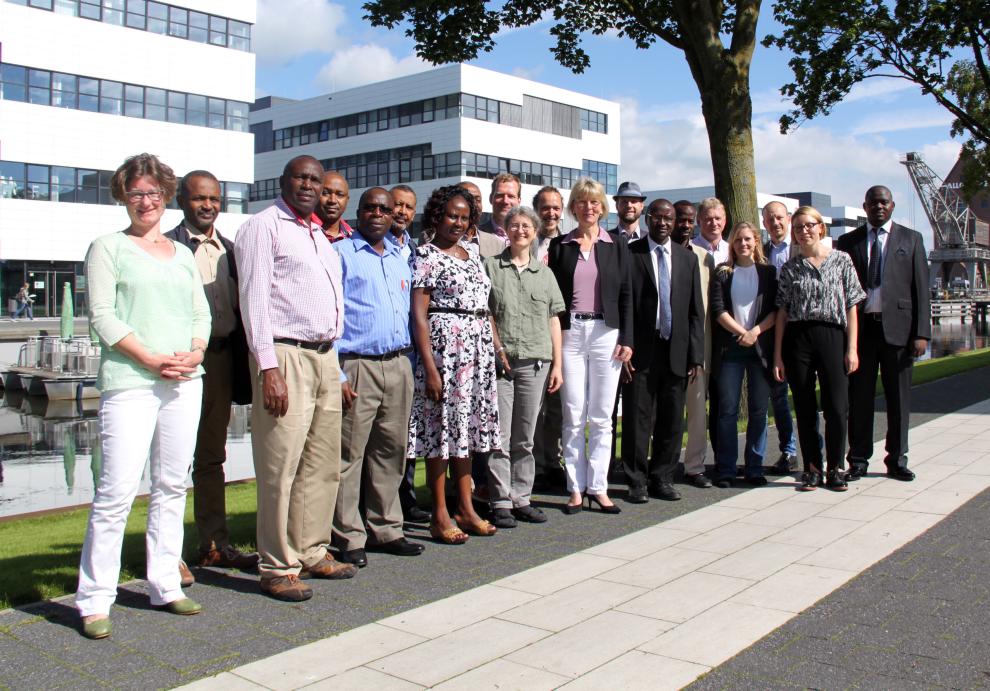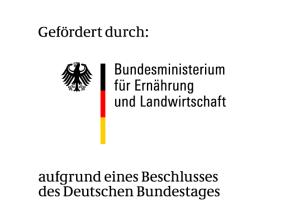BAOFOOD kick-off workshop at Rhine-Waal University of Applied Sciences
Ensuring a sustainable food supply through the African baobab tree
The research project BAOFOOD is dedicated to improving the food supply and situation in rural east Africa through the remarkable baobab tree. The project kicked off with an initial workshop in June 2016, which brought researchers and project partners from renowned international institutions to Kleve.
The baobab tree (Adansonia digitala L.), also known as the monkey-bread-tree, is a distinct tree native to many regions in Africa. Fruit, leaves and other parts of the baobab are edible and contain high amounts of vitamins, trace elements and antioxidants. The baobab is also the focus of the multinational BAOFOOD project led by Rhine-Waal University of Applied Sciences with partners from Kenya, Sudan, the United Kingdom and Germany recently gathered on the Kleve Campus for a kick-off workshop to mark the official start of the project. The goal of the workshop was to develop a detailed plan for the upcoming research activities in Kenya and Sudan in the coming months. These will include, for example, initial field studies dedicated to mapping and measuring baobab trees as well as gathering samples of fruit and leaves to investigate their nutritional value through laboratory tests.
The project will also include research into general dietary habits and preferences with regard to baobab-based products as well as the current market situation. The workshop concluded with tours of sustainable agricultural production projects currently underway in Amsterdam as well as a visit to the artificial flavour producer Silesia Gerhard Hanke GmbH & Co. KG in Neuss, Germany.
The BAOFOOD project is led by Rhine-Waal University of Applied Sciences and supported by the German Federal Ministry of Food and Agriculture (BMEL). The Federal Office for Agriculture and Food (BLE) is the project executing agency. BAOFOOD is funded to the tune of 988,576 EUR from 2016 through 2019.
BAOFOOD Project Partners
| Rhine-Waal University of Applied Sciences | Professor Dietrich Darr |
| Professor Dr habil. Jens Gebauer | |
| Professor Dr Florian Kugler | |
| Professor Dr Dagmar Mithöfer | |
| Dr Katja Kehlenbeck | |
| Kathrin Meinhold | |
| Martin Hommels | |
| Justus Liebig University of Gießen | Professor i.R. Dr Michael Krawinkel |
| Dr Tsige-Yohannes Habte | |
| Esther Evang | |
| ttz Bremerhaven | Martin Schüring |
| Baobab Social Business gGmbH | Andreas Triebel |
| Phytotrate (UK) | Arthur Stevens |
| Jomo Kenyatta University of Agriculture and Technology (Kenya) | Professor Willis O. Owino |
| Professor Fredah Karambu Rimberia Wanzala | |
| Professor Kavoi Muendo Mutuku | |
| Nyori Jeremiah Mbugua | |
| Wild Living Resources (Kenya) | Anthony Maina |
| University of Khartoum (Sudan) | Professor Yahia Omar Adam Gumaa |
| Professor Elamin Sanjak | |
| University of Kordofan (Sudan) | Professor Tarig Elsheikh Mahmoud |
| Muneer Elyas Siddig Eltahir | |
| Katavi Botanicals; Bio-Innovation | Gus Le Breton |


